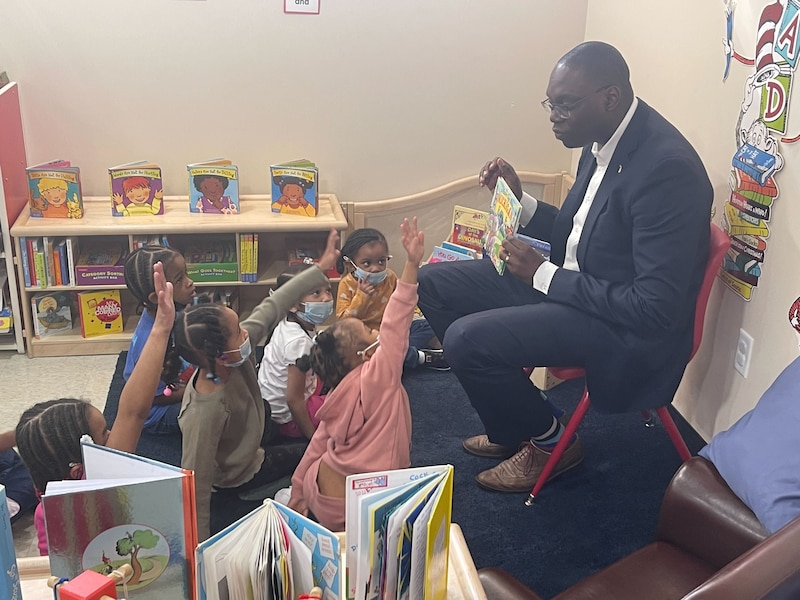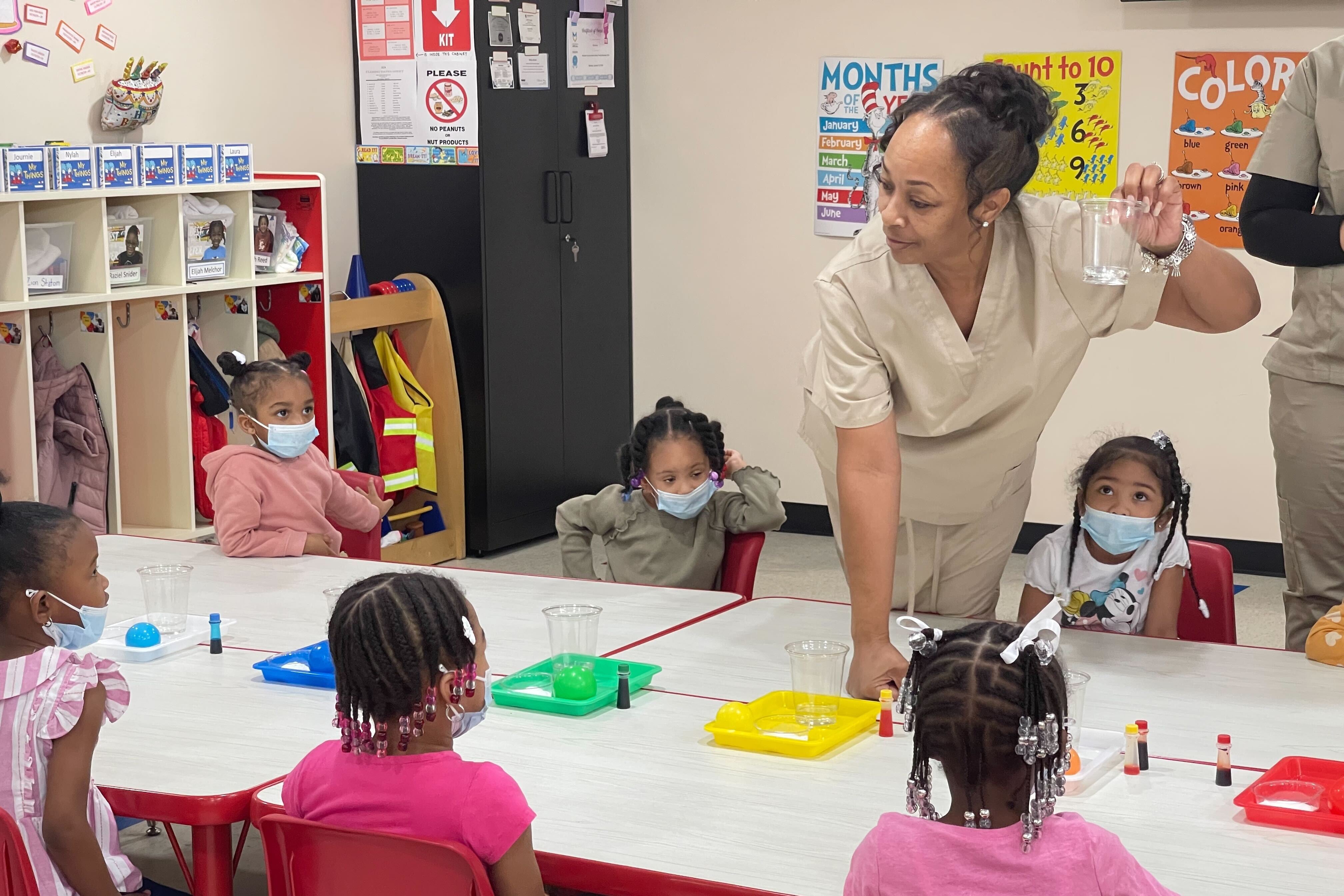Gov. Gretchen Whitmer’s goal to make preschool free and available to all families is a big task.
The biggest hurdles for the state to overcome are shortages of qualified staff and too few affordable, quality child care spots for 4-year-olds.
To create a universal prekindergarten program, the governor plans to improve pay for early childhood educators, create affordable pathways for future teachers to get credentials, and expand or open new child care centers.
Now, the state also plans to collaborate with nonprofit organizations, school districts, and colleges to address the issue.
“Any problem that’s this big requires all hands on deck,” said Lt. Gov. Garlin Gilchrist Friday after a visit to a pre-K class in northwest Detroit. “We need a diversity of options to be made available to families. In order to provide that, we’re going to need a diversity of partners.”
Gilchrist visited Angels of Essence Day Care to have a roundtable discussion about expanding pre-K and child care with parents and early childhood educators. While there, he also read to a preschool class and helped the kids recite the colors of the rainbow.
Courtney Adams, whose son, Elijah, was in the class, said during the roundtable that she and her husband have to pay out-of-pocket for child care. She chose Angels of Essence because she felt it was a safe and affordable option.
“He comes home every day with something new,” she said of her son’s education. “He’s going into kindergarten in the fall, and I know he’s going to do great.”
About 40% of Michigan’s 4-year-olds currently do not attend preschool, according to the governor’s office.
Last year, Whitmer announced plans to make the state’s Great Start Readiness Program, or GSRP, available to all Michigan 4-year-olds. The program currently offers free pre-K to students from mostly low-income families.
Originally, Whitmer said she planned to expand GSRP to be offered universally by 2026. But in her State of the State address, the governor announced that she would accelerate those plans by two years.
During the 2021-22 school year, the program enrolled more than 35,000 4-year-olds, an increase of more than 9,000 students compared to the previous year, according to the most recently available data.

Gilchrist noted that Michigan’s early childhood educators are often underpaid. A 2022 report by the Michigan League For Public Policy, found that early childhood educators often live in poverty. The low wages force many workers to leave the profession, making it difficult for centers to retain full staffing.
“We have this challenge broadly with educators that for so long the profession has been utterly disrespected,” said Gilchrist. “One of the manifestations of that disrespect is that it’s woefully underpaid.”
Salaries for GSRP teachers have improved slightly in recent years, but were still 31% lower than salaries for K-12 teachers, according to the program’s 2021-22 report. GSRP teachers made a median annual salary of $43,094 that year, while associate teachers earned a median annual salary of $22,077.
Michigan gave $30 million in 2021 to support bonus pay for early childhood care and education staff to help stabilize centers during the upset of the pandemic. But those funds ran out in 2023.
“Certainly, we want to try to continue to make those gains more permanent,” said Gilchrist of the additional funds for salaries.
Nonprofits have already had success widening the K-12 teacher pipeline in the state. Talent Together, an initiative made up of nonprofits, regional superintendents, and other education leaders, has helped bring new educators to the field. The program has created grow-your-own programs for school support staff to become teachers, as well as apprenticeships, and other avenues of removing financial barriers for future teachers to become certified.
The Michigan Educator Workforce Initiative, a nonprofit that is already part of the Talent Together program, recently announced it is applying for a grant from the state’s Office of Labor and Economic Opportunity to expand registered apprenticeships for early childhood center leaders and teachers.
“The registered apprenticeship model helps create an environment where there are processes, a clear training regime, and all the right partners at the table to inform what early childhood learning looks like,” said Jack Elsey, founder of the MEWI.
Wayne Regional Educational Service Agency, Montcalm Area Intermediate School District, Marquette-Alger Regional Educational Service Agency, the Early Childhood Investment Corporation, and the Detroit Employment Solutions Corporation are collaborating with the nonprofit on the effort.
“We recognize as a whole in the state, there is a gap,” said Sophia Lafayette-Lause, executive director of early childhood at Wayne RESA, about collaboration to recruit and retain more pre-K teachers. “Supporting those efforts is critical.”
Hannah Dellinger covers K-12 education and state education policy for Chalkbeat Detroit. You can reach her at hdellinger@chalkbeat.org.






